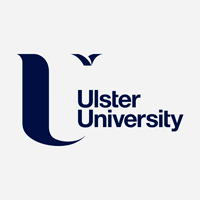fees waived
Biomedical Engineering, BEng (Hons), with industry placement
Ulster University, United Kingdom
Ranking in UK
Engineering: General
General Engineering
General Engineering
Costs
food & rent S$24.8k / year
Entry requirements
Scholarships
Unlimited quantity
Unlimited quantity
Limited quantity
Information
Code
Code
Intakes
Website (External)
Programmes
Information
Duration
2030
Biomedical Engineering integrates biology and engineering principles to advance medicine and healthcare, applying innovative materials and techniques across diverse fields. Professionals in this area may develop artificial organs, surgical robots, advanced prosthetics, or new pharmaceuticals.Biomedical Engineers, also known as Bioengineers, drive medical innovations by designing and creating essential equipment for doctors and scientists. As technology's role in healthcare grows, demand for these experts is rising, fostering revolutionary solutions. The field is expanding into emerging domains like tissue engineering and regenerative medicine, a key research focus at Ulster University's School of Engineering.
A local representative of Ulster University in Singapore is available online to assist you with enquiries about this course.

